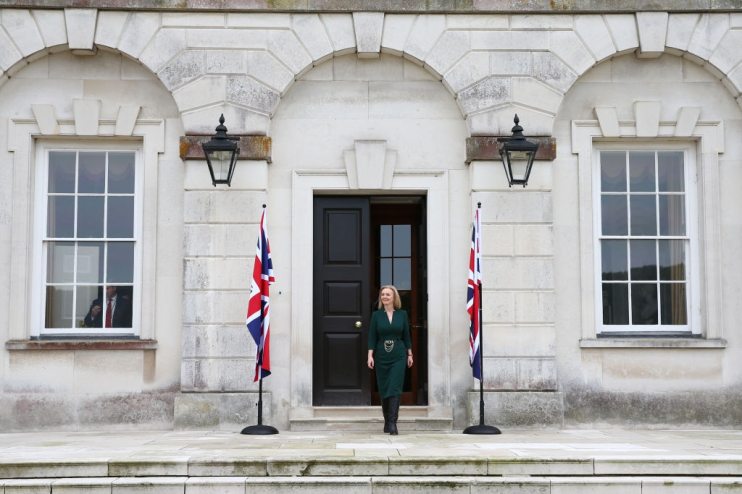Liz Truss must stand up to China against the genocide of the Uyghur muslims

At Conservative Party Conference, Foreign Secretary Liz Truss called the UK a “lodestar of freedom and democracy” and called for Great Britain to work with allies to promote freedom around the world.
“The democratic world order faces a stark choice,” she said. “Either we retreat and retrench in the face of malign actors … or we club together and advance the cause of freedom.”
The Foreign Secretary’s speech marks a significant step forward. This is one of the first speeches in living memory framing a values-based vision for foreign policy. If the Foreign Secretary’s rhetoric turns into action, this could be a watershed moment.
One of the central tests for assessing whether the Foreign Secretary is serious in her ambitions will be how she responds to the treatment of the Uyghurs in Xinjiang. A Chinese defector reminded us again this week of the true atrocities as he revealed to Sky News how Uyghur detainees are transported in their hundreds on packed prison trains, along with details of torture and deaths inside re-education centres in Xinjiang.
Dominic Raab has always ducked the big question of the day, refusing to label the treatment of Uyghur muslims as genocide, despite the US calling a spade a spade.
If the new Foreign Secretary is serious about Britain being a “lodestar of freedom and democracy”, she should take steps to rectify this failure.
There are three ways forward. The Foreign Office has the resources to make an assessment and could join our American partners in doing so. This would be an outstanding act of solidarity with the Uyghur community. The widespread evidence of forced abortions and the strategic curtailing of the size of the Uyghur population, as well as the mass enslavement of Uyghurs furnishes the Foreign Office with more than enough evidence.
However, the Foreign Office has always been reluctant to do this in the past because they see this as a matter for a “competent court”. Of course, China doesn’t recognise the jurisdiction of the only court with the competency to make that judgment – the International Criminal Court. This problem has a relatively easy solution, however.
And that solution is choosing to create a mechanism by which British courts can adjudicate on genocide. This idea comes from a campaign to amend the Trade Bill in the spring of this year. Campaigners sought to create a mechanism ensuring that in cases where there was evidence of genocide, British courts would have the ability to assess the evidence and make a preliminary judgment. This would then be applied to all areas of government policy.
Despite the huge Tory majority, this amendment was only defeated very narrowly, following fierce whipping by the government of normally loyal backbenchers. The platform of a British court would put serious heft behind Truss’ values-based rhetoric.
A final possible means by which the Foreign Secretary could act would be on the results of the ongoing Uyghur Tribunal. Convened by Sir Geoffrey Nice QC, one of the UK’s most senior international lawyers, its panel is considering all the publicly available evidence of genocide. Although non-binding, this citizens’ tribunal will be the most conclusive and authoritative statement to date
If they find that genocide is taking place, the Foreign Secretary must act. Liz Truss has set a big vision for Global Britain. How she deals with Xinjiang will show whether she is serious about this.